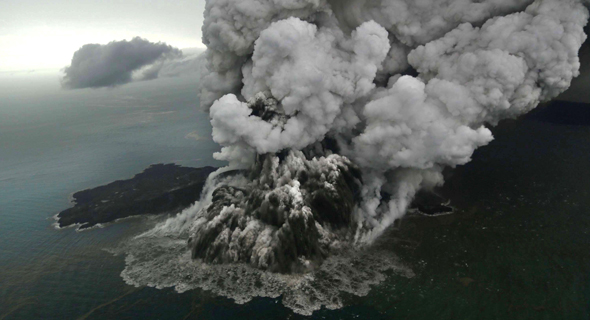
This week, the World Economic Forum (WEF), the annual meeting of leading world leaders and business leaders in Davos, Switzerland, will open.
This year there will be a shortage of prominent leaders, including US President Donald Trump, who canceled his participation due to the suspension of the administration, and British Prime Minister Theresa Mae, who is trying to resolve the impasse in the Berkazit talks.
In preparation for the conference, the Forum published the greatest risks facing us in 2019. The report is based on a survey among the participants and is divided into two – the list of the most likely risks and the list of the most influential risks.
Will you offer us a hand? Every gift, regardless of size, fuels our future.
Your critical contribution enables us to maintain our independence from shareholders or wealthy owners, allowing us to keep up reporting without bias. It means we can continue to make Jewish Business News available to everyone.
You can support us for as little as $1 via PayPal at office@jewishbusinessnews.com.
Thank you.
Climate-related risks dominate this list for the third consecutive year, both in terms of their impact and the likelihood that they will occur. “The world is experiencing unprecedented heat waves, storms, and floods in 2018. The environment and weather dominate three of the top five risks, both in the list of plausibility. The failure to find solutions to climate change is second in the two lists and represents the growing fears of policy failure. “The consequences of lack of action on the climate are becoming clearer,” the report stresses.
Other concerns on the list relate to our growing dependence on technology, the state of the global economy, and social and geopolitical risks. Cyber attacks, for example, appear in both lists – fifth in the list of reasonableness and seventh in the list of effects – when data theft appears only in the likelihood list and reflects a more general trend in how technology affects the risk landscape.
Last year a number of cyber attacks were reported that affected the personal information of millions, if not billions, of people around the world. However, 82% of respondents believe that the number of cyber attacks leading to money theft and personal information will increase this year. “It reflects how new instability is caused by the deepening integration of digital technology in every aspect of everyday life,” the report said.
Another risk presented in the two lists relates to the water crisis and the lack of quality, clean water. At the same time, most respondents believe that there will be an increase in the risks associated with “economic conflicts between the superpowers” (91%) and “the erosion of laws and international trade agreements” (88%). In addition, the risk of a bubble of assets in a large economy is ranked tenth in the list of reasonableness.
The 10 most likely risks are:
1. Extreme weather events (floods, storms, etc.).
2. Failure to find solutions and adopt climate change policy.
3. Major natural disasters such as earthquakes, tsunamis, volcanic eruptions and huge storms.
4. Large incidents of information theft or fraud.
5. Cyber attacks on a large scale.
6. Damage and man-made environmental disasters such as oil leaks, radioactivity leaks and so on.
7. Large-scale involuntary migration.
8. Significant loss of biodiversity and collapse of ecosystems.
9. Water crisis.
10. Bubbles assets in a large economy.
10 Most Influential Risks:
1. Weapons of mass destruction.
2. Failure to find solutions and adopt climate change policy.
3. Extreme weather events (floods, storms, etc.).
4. Water crisis.
5. Major natural disasters such as earthquakes, tsunamis, volcanic eruptions and huge storms.
6. Significant loss of biodiversity and collapse of ecosystems.
7. Cyber attacks on a large scale.
8. Collapse and loss of information regarding infrastructures and networks.
9. Damage and man-made environmental disasters such as oil leaks, radioactive leaks and so on.
10. Rapid and large spread of contagious diseases.
These risks are not isolated from each other, they are related to each other and each has the potential to influence others. For example, loss of biodiversity affects the food chain, which affects health and socioeconomic development.
10 biggest risks associated with each other:
1. Extreme weather events + failure to find solutions and adoption of climate change policy.
2. Large scale cyber attacks + collapse and loss of information related to infrastructure and networks.
3. High structural unemployment rate + Negative consequences as a result of technological progress.
4. High structural unemployment rate + deep social instability.
5. Large incidents of theft or information fraud + large-scale cyber attacks.
6. Failure in regional or global administration + conflicts within countries with regional influences.
7. Extreme weather events + food crisis.
8. The collapse of a central financial institution or mechanism + a bubble of assets in a large economy.
9. Large-scale involuntary migration + conflicts within countries with regional influences.
10. Negative consequences of technology advances + large-scale cyber attacks



